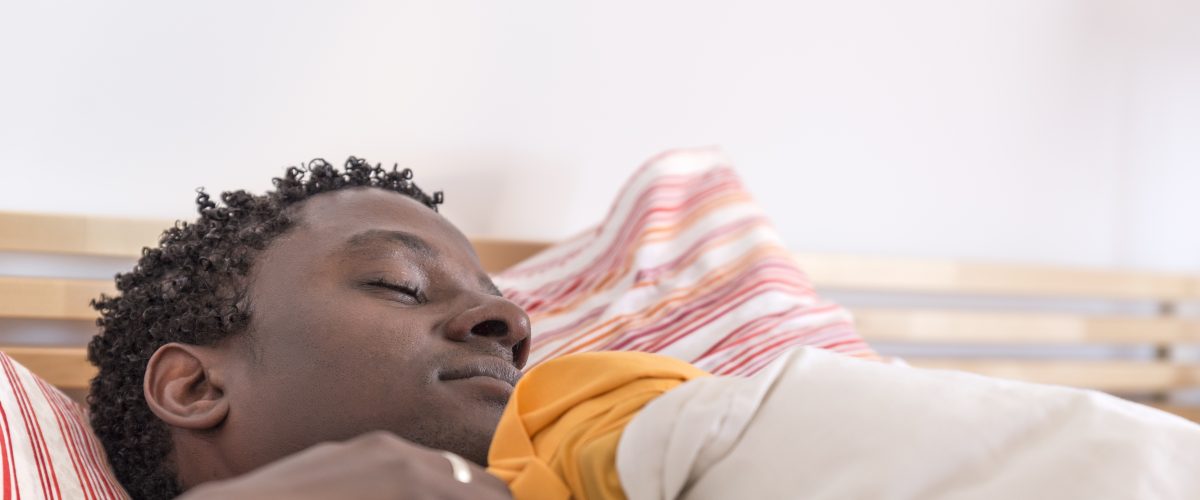By Virginia Gurley, MD, MPH
Dr. Braman:
Our session this time is Lifestyle Habits for Falling Asleep Easily. I’m Dr. Marc Braman. Thank you for joining us again, Dr. Gurley.
Dr. Gurley:
Thank you, Dr. Braman.
DB:
So good sleep is more than allowing just enough time to be in bed or horizontal. How can lifestyle help someone who has trouble falling asleep or getting to sleep easily? Which lifestyle habits are most important?
DG:
Our modern lifestyle and the environment that we live in today really does work against how the body shifts into restful sleep. In terms of lifestyle habits that are fairly quick and easy to incorporate into your lifestyle, I think there are four key factors. One, relates to your exposure to light, and I’ll go into that in more detail. Another is when and what you eat for dinner, and then another is what you drink, and then the fourth one is what’s on your mind as you get ready for sleep.
DB:
So we’ve talked in other sessions about how light affects sleep. What specific lifestyle habits can help someone fall asleep more easily?
DG:
Most people are starting to become aware that light at night blocks the body’s process of getting ready to fall asleep, but how much light you get during the day also is very important because the more bright light you’re exposed to during the day, the less light at night blocks the body’s preparation for sleep. So getting outside, ideally outside is the best source of bright light even if it’s cloudy out, for at least 20 minutes a day is going to make a big difference. And if you exercise during the day, then doing that exercise outside can really even more greatly improve the benefits of being outside because you’re getting exercise as well.
DG:
If you can’t get time outside or if you don’t have time to park your car a few blocks away and walk that last bit into work, then getting exposed to bright indoor light like a lightbox or very bright lights into your work station can help. The other part of that is making sure that you dim your lights at least 60 to 90 minutes before bedtime. So any lights that you don’t need that you dim those so that you’re not getting the sleep-blocking effect of light at night. And that also means avoiding computer screens, television screens, even smartphone screens, and that your bedroom should really be as dark as it can safely be.
DB:
So it sounds like we’re pretty much mimicking normal human living before this modern era of technology?
DG:
That’s correct.
DB:
What about food or dinner and falling asleep?
DG:
Dinner has a profound effect, a very important effect on how easy it is to fall asleep. One key factor is the size of your dinner. Your dinner should not be really more than a third of your total daily calories for the day. Many people are eating their largest meal of the day, often as much as 50% of their calories during dinner and you really need to pare that back. Also, the timing of dinner is really important, and you should finish your dinner at least three hours before bedtime. The digestion of food warms up your body on the inside, and that can really block sleep. And then also, what you eat is important. You want to avoid carbohydrates, and you really want to focus mostly on vegetables and lean proteins, and then you also want to avoid salt, which will block part of the body’s sleep onset mechanism. And spicy foods, especially spicy foods that are chilli-based can also disrupt the onset of sleep.
DB:
So most people know that they should not be drinking anything with caffeine or other stimulants after early afternoon time. But what other drinking habits or fluids might be an issue for falling asleep more easily?
DG:
There’s more and more literature that is showing that drinking alcohol at night can delay the onset of sleep, and so avoiding alcohol within the three to four hours before bedtime, that will help improve the onset of sleep or getting to sleep. But one aspect of fluids that a lot of people aren’t aware of is if you’re not getting enough water during the day, just free water, then you’re not necessarily completely dehydrated, but you don’t have enough fluid in your blood system in your blood vessels to support getting to sleep. And so increasing the amount of water that you’re drinking between 10 in the morning and dinner time can really help you get to sleep more easily.
DB:
Interesting. That’s not quite so obvious. Now, we’ve talked in other sessions about how mental activity affects sleep. How can someone use their mind or manage their brain to help them fall asleep more easily?
DG:
Not having a state of mind that allows sleep is a big cause for difficulty falling asleep. And it really doesn’t require more than a few minutes to shift your mind toward a calmer state. Now, certainly, if you’ve had upsetting events during the day or if you’re feeling anxious, it’s not easy to just shut those off and really when people take the time to actually tune in to those feelings, to acknowledge, “I’m feeling anxious,” and to kind of say, “Oh yeah, it’s because of that near-accident that I had on the way home from work or a fight with a person, or someone was rude,” or what have you, to acknowledge those thoughts, but then after that to shift to positive events from the day, or if nothing positive happened, a positive memory or some future dreams that make you feel good. And then using those positive thoughts to feel associated calmness or peacefulness within your body, and enjoy that calmness.
DG:
Sometimes, worrying or problem-solving thoughts pop in again and you just want to repeat that process, and build on a calm state. And this needs to become a habit, not a Band-Aid when you’re stressed out. So just start by doing this activity when you’re doing something you already do every night before bed, like while your undressing or showering or brushing your teeth. And then after you’ve gotten into the habit, you can dedicate all of your attention to calming your mind and it’ll be even more effective.
DB:
Excellent. So, essentially, we want to learn how to manage our mind, especially before bed. In future sessions, we’re going to be talking some more about how to stay asleep and how to stay asleep until the morning when you really want to wake up. Thank you so much, Dr. Gurley.
DG:
Thank you, Dr. Braman.
How to fix a broken clock. Schroeder AM, Colwell CS. Trends Pharmacol Sci.2013 Nov;34(11):605-19. doi: 10.1016/j.tips.2013.09.002. Epub 2013 Oct 10.
Protecting the melatonin rhythm through circadian healthy light exposure. Bonmati-Carrion MA, Arguelles-Prieto R, Martinez-Madrid MJ, Reiter R, Hardeland R, Rol MA, Madrid JA. Int J Mol Sci. 2014 Dec 17;15(12):23448-500. doi:10.3390/ijms151223448.
Improving sleep with mindfulness and acceptance: a metacognitive model of insomnia. Ong JC, Ulmer CS, Manber R. Behav Res Ther. 2012 Nov;50(11):651-60. doi: 10.1016/j.brat.2012.08.001.





